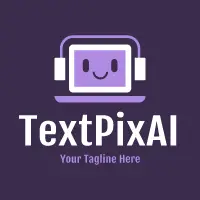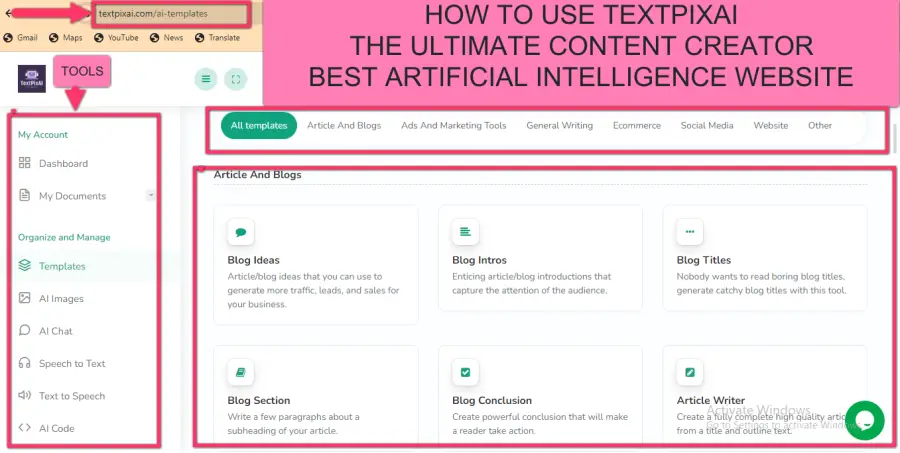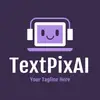AI-Powered Content Creation
Introduction
In the digital age, content is king. Whether you're a blogger, marketer, journalist, or educator, creating engaging, informative, and relevant content is essential for reaching and connecting with your audience. However, the demand for high-quality content has skyrocketed in recent years, posing a challenge for content creators who must produce valuable material consistently.
You may also like to read:
AI in Sales Forecasting: Predicting Success with Precision
Enter Artificial Intelligence (AI), a technological innovation that is reshaping the content creation landscape. AI-powered tools are revolutionizing the way we produce written, visual, and even audio content. In this article, we will explore the impact of AI on content creation, its numerous benefits, the challenges it presents, and the exciting future it promises.
The Role of Content in the Digital Landscape
Definition and Significance of Content Creation
Content creation encompasses the process of producing information for various media platforms, including written articles, blog posts, videos, infographics, and more. It serves as the backbone of online communication and plays a pivotal role in conveying ideas, sharing knowledge, and connecting with audiences.
In today's digital world, content is the vehicle through which businesses build brand awareness, marketers engage with customers, news organizations deliver updates, and educators facilitate learning. The significance of content creation cannot be overstated—it's the key to establishing a strong online presence and effectively communicating messages.
The Evolution of Content Creation in the Digital Era
The digital era has witnessed a rapid evolution in content creation practices. Traditional forms of content, such as print articles and TV broadcasts, have given way to a diverse array of digital media. Blogs, social media posts, podcasts, and interactive videos are now essential components of the content landscape.
This transformation has brought both opportunities and challenges. On one hand, the digital realm offers a global audience and unprecedented reach. On the other hand, the sheer volume of content being produced creates a competitive environment where creators must strive for uniqueness and quality.
The Challenges of Producing High-Quality, Engaging Content at Scale
Creating high-quality content that resonates with an audience can be a demanding task. Content creators face several challenges, including:
-
Content Fatigue: The internet is flooded with content on nearly every topic imaginable. Standing out in the crowd requires not only valuable information but also creativity and uniqueness.
-
Consistency: Maintaining a consistent content schedule can be taxing. Content creators must produce new material regularly to keep their audience engaged.
-
Time Constraints: Content creation involves multiple stages, from research and ideation to writing, editing, and promotion. These processes demand time and effort.
-
Scalability: As businesses and websites grow, so does the demand for content. Scaling up content production while maintaining quality is a common challenge.
Understanding AI in Content Creation
An Overview of Artificial Intelligence (AI) and Its Applications
Artificial Intelligence, often abbreviated as AI, is a multidisciplinary field of computer science focused on creating systems that can perform tasks that typically require human intelligence. These tasks include understanding natural language, recognizing patterns, making decisions, and even learning from experience.
AI's applications are vast and varied, with its reach extending into virtually every industry. In the realm of content creation, AI has emerged as a powerful tool with the potential to reshape how content is generated, edited, and even personalized.
How AI Is Changing the Content Creation Landscape
AI is disrupting the content creation landscape in several ways:
-
Automation: AI can automate repetitive tasks involved in content creation, such as data gathering, fact-checking, and formatting. This automation streamlines the content production process.
-
Personalization: AI algorithms can analyze user data to personalize content recommendations. This ensures that users receive content that aligns with their preferences and interests.
-
Content Generation: AI-driven tools are capable of generating content autonomously. These tools can produce articles, reports, and even creative pieces with minimal human input.
-
Enhanced Creativity: AI can assist content creators by providing creative suggestions, generating ideas, and offering alternative perspectives.
The Power of AI in Content Creation
Content Generation: From Text to Multimedia
AI's capabilities extend beyond text-based content. It can generate a wide range of content types, including:
- Text: AI algorithms can write articles, reports, product descriptions, and even fiction.
- Images: AI-powered tools can generate images, illustrations, and designs.
- Videos: AI can automate video creation, including video editing, voiceovers, and animations.
- Audio: AI-driven text-to-speech technology can convert written content into audio format.
This versatility enables content creators to diversify their offerings and engage with audiences using various media.
Automation of Repetitive Tasks and Content Personalization
One of AI's most significant contributions to content creation is the automation of repetitive tasks. Content creators can offload tasks such as data collection, formatting, and social media posting to AI-driven systems. This frees up time and mental energy for more creative and strategic aspects of content creation.
AI's ability to personalize content recommendations enhances user experiences. Content platforms use AI to analyze user behavior and preferences, delivering content that aligns with individual interests. This personalization increases user engagement and retention.
AI's Role in Enhancing Creativity and Ideation
While AI is known for its analytical capabilities, it can also boost creativity. AI-driven tools can offer content creators suggestions for headlines, topics, and angles. They can provide alternative words, phrases, or styles to diversify writing styles.
In essence, AI complements human creativity by acting as a collaborator and idea generator. Content creators can harness AI to explore new creative territories and refine their craft.
AI-Powered Writing Tools
Natural Language Processing (NLP) and Its Applications in Content Creation
At the heart of AI-powered content creation lies Natural Language Processing (NLP). NLP is a subfield of AI that focuses on enabling computers to understand, interpret, and generate human language. It forms the foundation for many AI-driven writing tools.
NLP applications in content creation include:
- Content Analysis: NLP algorithms can analyze existing content to identify trends, keywords, and sentiment.
- Grammar and Style Checks: NLP-powered tools offer real-time grammar and style suggestions to improve writing quality.
- Content Summarization: AI can generate concise summaries of lengthy articles, making content more digestible.
- Translation: NLP-based translation tools enable content localization for global audiences.
Popular AI Writing Assistants and Content Generation Platforms
Numerous AI-powered writing assistants and content generation platforms have gained popularity in recent years. These tools cater to various content needs, including:
-
GPT-3 and GPT-4: OpenAI's Generative Pre-trained Transformers (GPT) are versatile language models that can generate human-like text in response to prompts. They are used for content generation, chatbots, and more.
-
Grammarly: Grammarly employs NLP to offer grammar and style suggestions, making it a valuable tool for writers.
-
Copy.ai: Copy.ai generates marketing copy, product descriptions, and more using AI-driven algorithms.
-
Snazzy AI: Snazzy AI specializes in content rewriting and optimization for better SEO performance.
-
Canva: Canva utilizes AI to assist in creating visually appealing designs and graphics for content.
These tools have democratized content creation by providing accessible, AI-driven solutions for both professionals and beginners.
How AI-Driven Writing Tools Work
AI-driven writing tools operate by processing vast amounts of text data to understand linguistic patterns, context, and user input. They leverage deep learning algorithms, including neural networks, to generate coherent and contextually relevant content.
For instance, GPT-3 and GPT-4 models are trained on a diverse range of internet text, allowing them to mimic human writing styles and generate coherent responses to prompts. Grammarly's algorithms analyze text for grammar, punctuation, and style issues and offer suggestions for improvement.
The underlying technology continually evolves, resulting in increasingly sophisticated AI-driven writing tools.
Benefits of AI in Content Creation
The integration of AI into content creation offers a multitude of benefits, both for individual content creators and organizations. Let's explore some of these advantages:
Improved Efficiency and Productivity for Content Creators
AI-powered tools significantly enhance the efficiency and productivity of content creators. By automating time-consuming tasks such as grammar checking, content analysis, and formatting, AI frees up creators to focus on higher-level creative and strategic work.
Content creators can now produce more content in less time without compromising quality, resulting in increased output and productivity.
Enhanced Content Quality and Consistency
AI's ability to analyze content for grammar, style, and readability ensures that content maintains a high level of quality and consistency. It helps creators avoid embarrassing typos, grammatical errors, and inconsistencies that can harm the credibility of their work.
Additionally, AI-driven writing tools can ensure that content adheres to brand guidelines and maintains a consistent tone and style across various pieces.
Personalized Content Recommendations and User Experiences
Content personalization is a cornerstone of modern online experiences, and AI excels in this domain. AI algorithms analyze user data, including browsing behavior and preferences, to deliver personalized content recommendations.
For example, an e-commerce website can use AI to recommend products based on a user's past purchases and browsing history. This level of personalization increases user engagement and conversion rates.
AI also enables dynamic content generation, allowing websites to display tailored content to different audience segments, ensuring that each visitor sees the most relevant information.
Efficient Multilingual Content Creation
In an increasingly globalized world, reaching audiences in multiple languages is essential. AI-powered translation and localization tools make it easier for content creators to expand their reach to non-English-speaking markets.
These tools can swiftly translate content while preserving context and cultural nuances, ensuring that the content remains culturally relevant and accurate.
Overall, AI's contributions to content creation result in higher-quality content, increased efficiency, and more engaging user experiences.
Challenges and Ethical Considerations
While AI offers transformative benefits in content creation, it also presents several challenges and ethical considerations that must be addressed:
Concerns Related to AI-Generated Content and Plagiarism
AI-generated content can raise concerns about originality and plagiarism. Since AI models are trained on vast datasets, there is a risk that they may inadvertently produce content that closely resembles existing works.
Content creators must exercise caution and employ plagiarism detection tools to ensure that AI-generated content is original and does not infringe on copyright or intellectual property rights.
Ensuring Transparency and Accountability in AI Content Creation
Transparency is a critical consideration in AI-driven content creation. Readers have the right to know whether they are engaging with content created by humans or generated by AI. Ethical guidelines should encourage content creators and platforms to disclose the use of AI in content production.
Additionally, accountability measures must be in place to address issues related to biased or inappropriate content generated by AI systems. Clear channels for reporting and rectifying AI-generated content problems are essential.
The Need for Human Oversight
AI-driven content generation is not entirely devoid of human intervention. While AI can handle many aspects of content creation, it is essential to have human oversight to ensure that content aligns with brand values, ethical guidelines, and legal standards.
Human editors and reviewers play a crucial role in refining AI-generated content, making decisions about content publication, and addressing issues that AI may not detect, such as context-specific sensitivities.
Real-World Applications
AI-powered content creation has found applications across various industries. Let's explore a few real-world examples of how AI is being used to generate content effectively:
Content Marketing and SEO: AI-Driven Strategies
Content marketing relies on creating valuable content to attract and engage audiences. AI is instrumental in content marketing strategies, including:
-
Keyword Research: AI tools help identify relevant keywords and trends that inform content creation for better SEO performance.
-
Content Optimization: AI-driven tools analyze existing content and suggest improvements to enhance SEO rankings.
-
Content Generation: AI-generated blog posts, product descriptions, and social media content support consistent and scalable content marketing efforts.
AI-driven SEO strategies leverage data-driven insights to improve search engine rankings and drive organic traffic.
Journalism and News Reporting with AI-Generated Articles
News organizations are increasingly turning to AI for automating routine reporting tasks. AI systems can generate news articles from structured data, such as financial reports, sports scores, and weather data.
This automation allows journalists to focus on investigative reporting and in-depth analysis, while AI handles the data-heavy aspects of news production.
E-Learning and AI-Generated Educational Content
AI is transforming education by generating personalized learning materials and educational content. AI-driven platforms can adapt content to individual learner preferences and abilities, providing a tailored educational experience.
Additionally, AI-generated content can help educators create interactive and engaging learning materials, such as quizzes, flashcards, and video tutorials.
Future Prospects and Innovations
As AI technology continues to evolve, the future of AI in content creation holds exciting possibilities. Here are some predictions for the road ahead:
AI-Enhanced Content Creation Tools
AI-powered writing tools will continue to evolve, becoming even more sophisticated and user-friendly. These tools will offer content creators improved writing suggestions, context-aware editing, and seamless integration with content management systems.
Multimodal Content Generation
The future will see AI generating multimodal content seamlessly, combining text, images, audio, and video into cohesive and engaging multimedia content pieces. Content creators will have access to AI-driven tools that make multimedia content creation more accessible and efficient.
AI-Generated Content for Augmented and Virtual Reality
As Augmented Reality (AR) and Virtual Reality (VR) technologies gain traction, AI will play a role in generating content for these immersive experiences. AI-driven systems will create virtual worlds, interactive simulations, and storytelling experiences in AR and VR environments.
AI-Powered Content Translation and Localization
AI translation and localization tools will continue to improve, enabling businesses to expand their global reach effortlessly. AI will not only translate text but also adapt content to cultural preferences and nuances, ensuring content resonates with diverse audiences.
AI-Enhanced Creativity and Innovation
AI models will be designed to enhance human creativity further. They will provide content creators with innovative ideas, creative prompts, and unconventional approaches to content generation. This symbiotic relationship between AI and human creativity will lead to groundbreaking content.
Conclusion
The integration of AI into content creation represents a transformative shift in how we produce, manage, and distribute content. AI-powered tools offer unprecedented levels of efficiency, quality, and personalization, empowering content creators and organizations to excel in the digital landscape.
However, this transformation is not without its challenges and ethical considerations. Content creators must navigate issues related to plagiarism, transparency, and the need for human oversight to ensure that AI-generated content aligns with ethical standards.
As we look to the future, the potential of AI in content creation is boundless. AI-powered writing tools will become more intuitive, multimodal content generation will redefine storytelling, and AI-driven content translation will bridge language barriers. Most importantly, AI will act as a catalyst for creativity and innovation, pushing the boundaries of what is possible in the world of content creation.
In this era of AI-powered content creation, content creators have a unique opportunity to leverage technology to enhance their craft, reach wider audiences, and create content experiences that resonate with people worldwide.
References
- OpenAI's GPT-3
- Grammarly
- Copy.ai
- Snazzy AI
- Canva
- AI in Journalism: How Robots Are Writing the News
- AI in Education: How Artificial Intelligence Is Personalizing Learning
- The Future of AI-Enhanced Content Creation
- Augmented Reality vs. Virtual Reality: What's the Difference?
- The Role of AI in Multilingual Content Marketing







